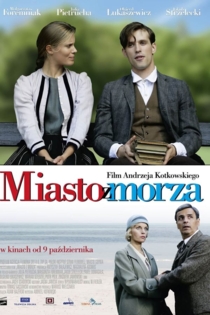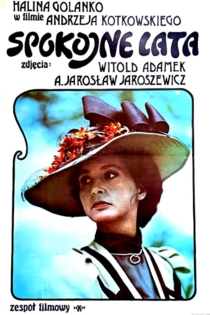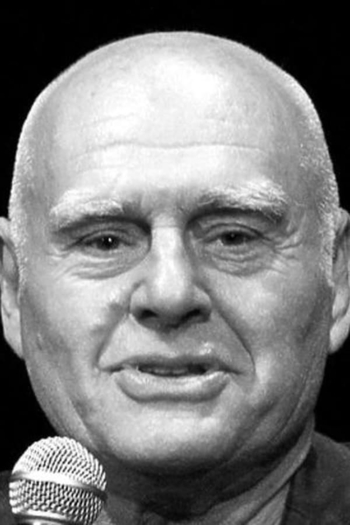
Andrzej Kotkowski
2021The Birch Wood
Andrzej Wajda
Daniel Olbrychski, Olgierd Łukaszewicz
Takes place in a prewar Poland. A tubercular young man comes to stay with his brother on a farm. He is in love with life and constantly plays 1930's music on a piano. He gets involved with his brother's problems and also becomes the lover of a simpleminded farm girl. The brother's dead wife may have had an affair with the hired man who is to marry the farm girl. His daughter will not confirm his suspicions. But the brother's death leads to his acceptance of the past, forgiving his wife's memory and making up with his little daughter.
The Birch Wood
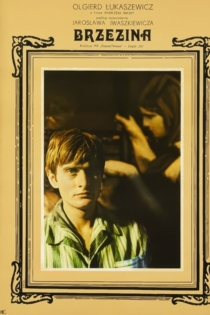
Obywatel Piszczyk
Andrzej Kotkowski
Jerzy Stuhr, Maria Pakulnis
This film is a sequel to Munk's Zezowate Szczescie and it's much the same, only more so. The film begins in a cinema, where the last scenes of Zezowate Szczescie are being shown. Born unlucky, a victim of the errors and distortions of Stalinism, he is released in 1956. He meets a politically feverish woman, her influential parents, and finally becomes the father of her child. But bad luck, or perhaps an unlucky era, will not let him forget.
Citizen Piszczyk
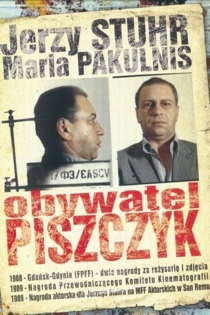
Olimpiada 40
Andrzej Kotkowski
Mariusz Benoit, Jerzy Bończak
The film deals with the a clandestine Olympiade held in a German POW camp during WW II, housing many Poles, but also French and Brits. A spit and a Polish German lieutenant is added to the staff of a prison camp. He sees a Pole, the acknowledged leader of the Polish prisoners, against whom he had competed during the Berlin Olympics in 1936. He asks the Pole to train with him but is refused; the Pole points out out that he is a prisoner and nothing more. But that plants the seed and the Pole proposes and Olympics 40 to be held among the prisoners. They ingeniously make a flag and medals, set up a number of races; a croaching hop race is unwittingly organized by a German prison guard who uses it as a torture. The German lieutenant knows that something is going on but cannot find out. Finally the Germans realize the idea and the Polish chief is sent to concentration camp but the others disobey the orders.
Olympics 40
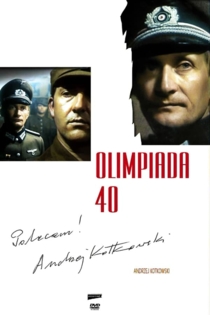
Awantura o Basię
Maria Kaniewska
Malgorzata Piekarska, Janina Macherska
После смерти матери маленькая Бася оказалась совершенно одна в большом городе. Доктор отправляет девочку в Краков по адресу, который прошептала перед смертью ее мать. В Кракове Басю никто не встретил. Ее взял к себе в дом одинокий писатель, который сильно к ней привязался. Через некоторое время появляется Станислава, подруга матери Баси, которая по недоразумению не встретила девочку. Писателю не пришлось никому отдавать девочку, так как он влюбился в Станиславу и она вышла за него замуж.
Argument About Basia
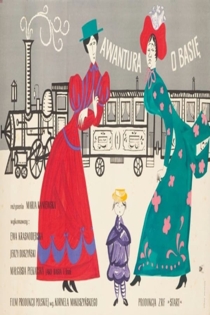
W starym dworku czyli niepodległość trójkątów
Andrzej Kotkowski
Beata Tyszkiewicz, Grażyna Szapołowska
In a country house at the turn of a century live a family of eccentrics. Anastasia, the beautiful mistress of the manor, enjoys the amorous attentions of her stepson Blarney so openly that her husband Diapanasius takes out his shotgun and shoots her. The rest of the family accepts her end as a matter-of-fact, and soon - her return as a voyeuristic ghost who interferes with their love lifes. Anastasia has a posthumous son Tadeusz, "born" by clambering out of the tree trunk. Anastasia seduces him too, and drives another men so crazy that they kill her another couple of times. Finally, Tadeusz, the arch-rebel, leads a mob on a raid of the old manor.
In an Old Manor House or The Independence of Triangles
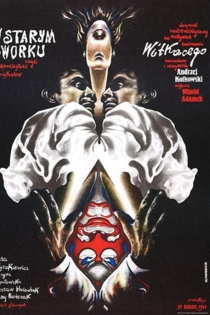
Obrazki z życia
Barbara Sass-Zdort, Andrzej Kotkowski
Bogdan Baer, Bożena Dykiel
Seven different stories tell us about interesting court cases from Poland. First tells us about romance, second about a young wannabe actress, third about a girl who escapes home with a music band, fourth about a divorce, fifth about a quarrel between two girls concerning a man, sixth about stolen soaps, seventh about a false writer.
Pictures from Life
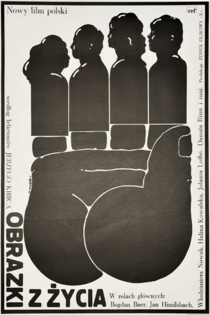
Jan Nowak Jeziorański. Kurier z Warszawy. 60 lat później 1944-2004
Andrzej Kotkowski, Andrzej Wajda
Jan Nowak-Jeziorański, Andrzej Wajda
Interview with political scientist and social activist Jan Nowak-Jezioranski by film director Andrzej Wajda.
Jan Nowak-Jezioranski: Courier from Warsaw

